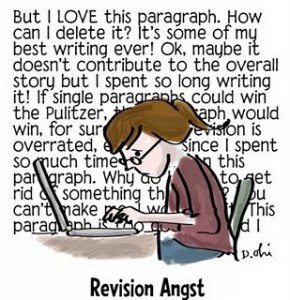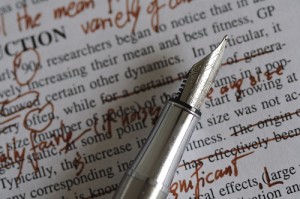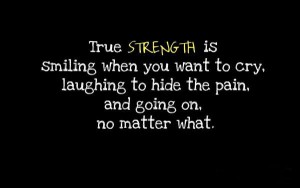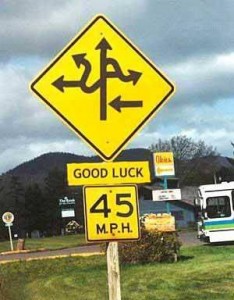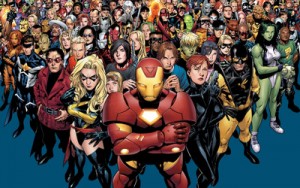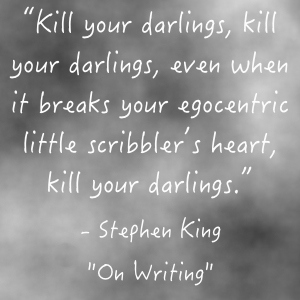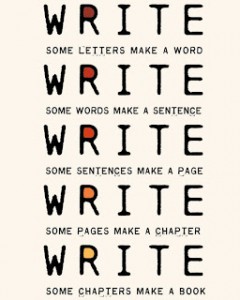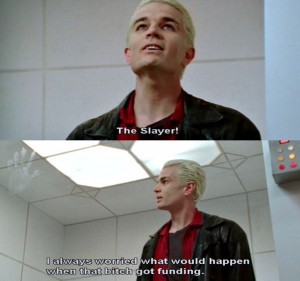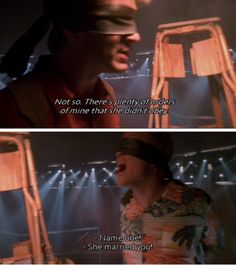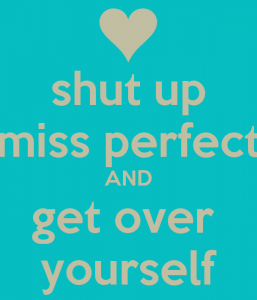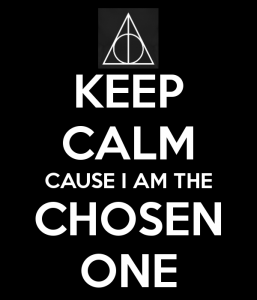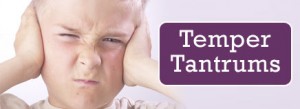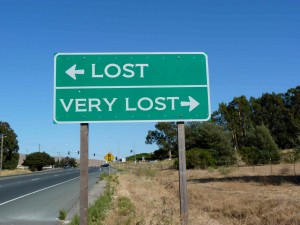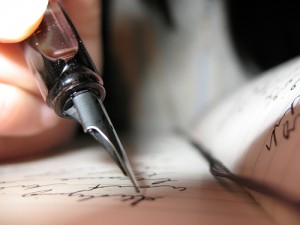Several people on Twitter asked why I write all of my first drafts longhand since it’s so much quicker to type it directly into Scrivener. While I answered them, there is only so much you can fit in 140 characters. Plus, I think that this is a good topic for a blog post.
I have been a writer for almost two years now, so I think that I have pretty much found a routine that works best for me. I went through a long process of trial and error to get there, but I’m pretty happy with what I have now (though every process can be perfected indefinitely). So maybe my ramblings and explanations can help someone else who is struggling with their productivity and is still looking for the best way to put words on the page?
Anyway, here are some of the reasons why I write my first drafts longhand.
1. You can carry a notepad and pen anywhere you go.
I work full time as an Office Manager and writing happens on top of that. My writing time can happen any time I have a spare minute: it could be during a 15 minute coffee break, during lunch, in the bathroom (yes, I have been known to go to the loo with a notepad, shock!), or in bed when my husband is asleep. So with this erratic schedule, it’s much easier to carry a small notepad and a pen in my purse than a tablet / netbook.
Plus, I need a normal keyboard to type fast. I hate the touch screen keyboard on my iPad, plus it seems like it can be laggy. Nothing aggravates me more than to type up a whole sentence and wait for it to show on screen… only to notice that I mistyped something halfway through and have to break the flow and go back to correct. GRR. I know that some people don’t pay attention to mistakes when they write down their first draft, and mostly I don’t either, but when I notice one, I can’t just press on without correcting it first.
Also, a small notepad is easier to fit on the table during lunch than a tablet / netbook, especially how small the tables in some restaurants are. And if I spill a drink on it by accident (it’s been known to happen), I only wasted $4-5 instead of $500.
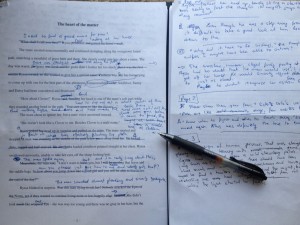
2. Keeps you focused on the task at hand.
Don’t know about you guys, but when I sit at the computer, I can find a million things to keep me from writing. I would start writing something, then decide to look up a word on google, then read an interesting article, then check on Twitter, oh and Facebook just buzzed me that there is a new post, and where did 3 hours of my life go? End result – almost nothing written and lots of time on stupid stuff.
When I am alone with my pen and paper, I HAVE to focus on what I’m writing instead of letting my brain flutter around like a butterfly on Red Bull (especially if I leave my cell in the purse and resist the temptation to check Twitter every 15 mins as well). So I get a lot more writing done in 1 hour with a pen and paper than sitting in front of my computer, even though my typing speed is much faster than my writing speed.
Usually, during my 1 hour lunch, I manage to write about 600-800 words (and eat something as well, most of the time). As an example, I’ve been trying to write this blog post for the past 3 hours and I barely got to the midpoint. Granted, it’s Monday and I have a lot of work to do as well, but I also spent a lot of time procrastinating on the internet instead of writing.
3. Helps organize your thoughts.
I don’t know about you, but I have noticed that writing longhand forces me to organize my thoughts better, which in turn results in a cleaner first draft that requires less editing afterwards. Writing longhand gives me the opportunity to think about the scene I’m working on, choose the right words and commit them to paper. While my hand finishes one sentence, my brain is already working on the best wording for the next one.
As I said, I can type really fast, but sometimes my fingers get ahead of my brain. So the resulting text is sometimes less than adequate. Don’t get me wrong, during NaNoWriMo, when I need to write 1666 words per day to get to 50k by the end of November, I usually bypass longhand and mostly write directly into my Scrivener file, but when I don’t have that time constraint, I prefer taking a much slower approach.
Plus, there is just something magical about seeing a pristine white page slowly getting covered with blue ink that motivates you to keep on writing. Seeing the words appear on a computer screen doesn’t quite have the same effect, maybe because the end result is not quite as immediately tangible (unless you print your work every day).
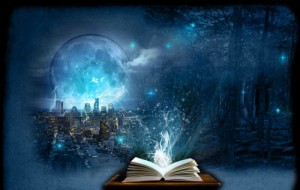
4. First round of editing when typing the text into Scrivener.
To me, that’s an added advantage of writing the first draft longhand. On the weekends, I usually try to type up everything I wrote during the week into my Scrivener file, which means that my text goes through a first round of edits almost on the spot. Sometimes I just change a word or two. Sometimes a few sentences here and there. It also happened that I wasn’t entirely satisfied with a scene when I first put it on paper, but by the time I was typing it up, my brain had come up with a better version that ended up being a full rewrite of the original scene.
So to me, writing longhand has some definite advantages, even if the process takes longer. I think that for those struggling with concentration or motivation, this method might be beneficial as well.
What about you, my fellow writers, what are your preferred methods of putting words on paper. What helps you get through that hard to do first draft and get to the end?


